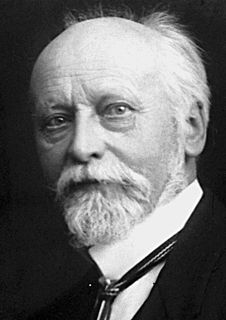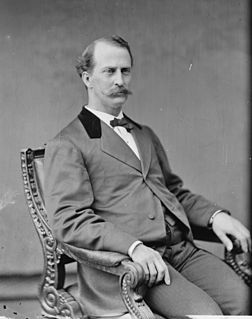A Quote by Ludwig Quidde
Time and time again we have experienced efforts directed toward this popular and simple concept of securing peace by means of disarmament.
Quote Topics
Related Quotes
Unlike South Africa, which decided on its own to eliminate its nuclear weapons and welcomed inspection as a means of creating confidence in its disarmament, Iraq appears not to have come to a genuine acceptance - not even today - of the disarmament, which was demanded of it and which it needs to carry out to win the confidence of the world and to live in peace.
As eternity is longer than time, as mind is stronger than matter, as thought is swifter than the wind, as genius is more potent than gold, so will the results of well-directed labors toward the development of man's higher faculties ever outweigh a thousand fold any estimate in the currency of commerce, which man can put upon such efforts.
I think it would help if, when people are first ordained, they underwent a period of strict training, maybe for several years. During this time they would learn basic Buddhist philosophy in a monastic community where all the teaching and training was directed toward living a perfect monastic life and wasn't channeled out to fit into the lay life - which is what usually happens in Dharma centers where the teachings are directed toward how to live the Dharma in your everyday life.
"The true Islamic concept of peace goes something like this: "Peace comes through submission to Muhammad and his concept of Allah" (i.e. Islam). As such the Islamic concept of peace, meaning making the whole world Muslim, is actually a mandate for war. It was inevitable and unavoidable that the conflict would eventually reach our borders, and so it has."


































